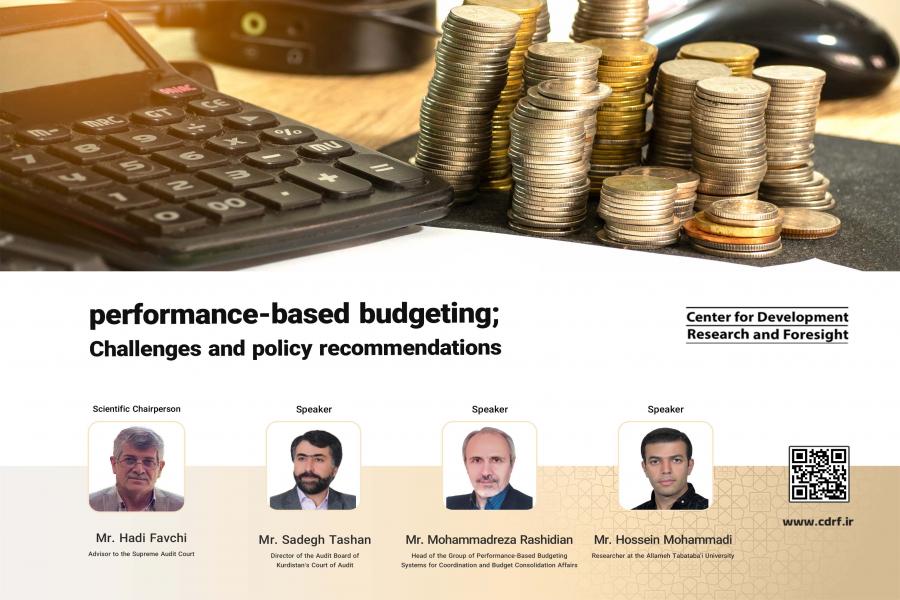

-
بررسی آییننامهها و دستورالعملهای برنامه هفتم پیشرفت
-
بررسی عوامل موثر بر افزایش تصادفات و تلفات جادهای و سوانح رانندگی و دادهکاوی تلفات انسانی
-
سازماندهی و بازآرایی فضایی آموزش عالی کشور
-
به روز رسانی سند ملی آمایش سرزمین
-
انجام مطالعات مناطق آزاد به عنوان نواحی پیشران اقتصادی کشور
-
اصلاح ساختار بودجه و پیاده سازی نظام یکپارچه مدیریت اطلاعات مالی دولت (IFMIS)

Performance-based budgeting fosters optimal resource utilization, enhances productivity through efficiency improvement, facilitates the achievement of goals, aligns strategic objectives with operational plans, and promotes transparency and accountability. When properly implemented and scientifically managed, this type of budgeting lays the groundwork for good governance and facilitates the realization of societal values.
Since 2001, extensive legal requirements in various laws have obligated the government to undertake necessary actions to reform the budgeting system, with one of its main pillars being the operational preparation and adjustment of budgets.
The following points and recommendations from the scientific-specialized conference of the Center for Development and Foresight Research are deemed essential for the effective implementation of the performance-based budgeting system:
- After performance and mission chain planning, the mission achievement indicator, program and activity, and performance indicators must be evaluated. A final combination of programs and activities should be reached based on these evaluations, contingent on the knowledge and experience of the evaluators in the evaluated organization.
- In budgeting, common programs among executive bodies should be differentiated, leading to a redefinition of the country’s executive structure to ensure meaningful responsibility, accountability, and transparency.
- For proper and scientific implementation of performance-based budgeting, several actions are necessary: providing information technology infrastructure; complete program execution through central agencies; considering compliance of provincial agencies with them; national acceptance and consensus of legislators and executives; complete commitment accounting; designing and implementing an output-oriented planning system; obligating executive bodies to provide reports on the level of achievement of indicators and performance indicators; amending conflicting laws and regulations with performance-based budgeting; and training specialized personnel.
- Oversight organizations should guide executive bodies towards focusing on assigned missions by adopting an appropriate approach to performance evaluation and cooperating with the Plan and Budget Organization. This will help steer the current movement in performance-based budgeting away from serious deviation.
- In Iran, as in advanced countries in the field of modern budgeting (such as performance-based budgeting), control over inputs is reduced in proportion to control over outputs (control over programs and activities of executive bodies and achievement of performance indicators).
- It is essential to organize budget rows in a way that no program is defined jointly among executive bodies.



